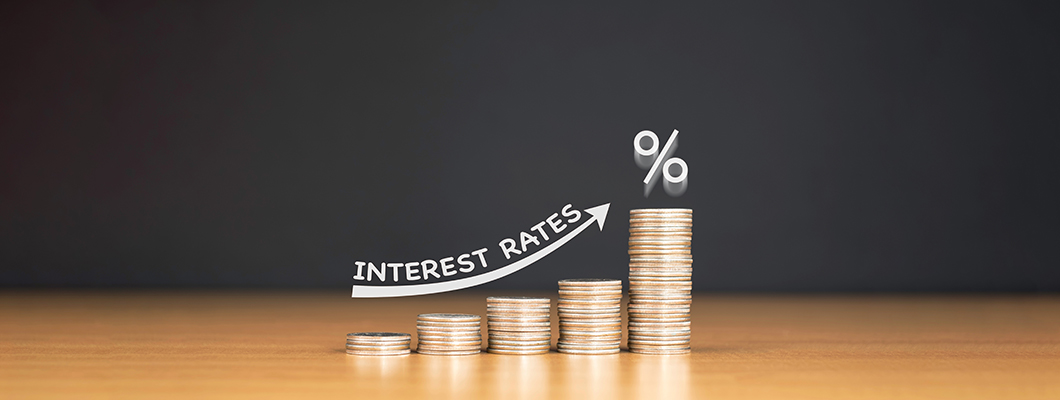
Will FD Interest Rates Increase in India 2023?
Posted on Saturday, June 3rd, 2023 | By IndusInd Bank
From April 2022 to March 2023, there has been a tremendous increase in interest rates, which is good news for all individuals looking to invest in FDs this year. Moreover, with the financial landscape getting more competitive, banks might increase the minimum interest rates as well, which means there is no better time to invest in fixed deposits than now.
Paving the way for a stable financial future calls for considerable thought and planning. It is, after all, essential to save money for your family, children and fulfil other long-term plans. Therefore it is always a good idea to invest in instruments which give you guaranteed returns.
A Fixed Deposit (FD) is one such instrument which lets you seek higher returns with greater stability. Today, owing to the current economic situation and rising inflation, speculation is rife regarding an increase in FD interest rates. Here is all you need to know.
What Does the Future Look Like?
Because of the rise in inflation in recent times, both lenders and consumers have been careful in handling finances. Fortunately, in its recent bulletin released on the 21st of March, the RBI noted that lenders were severely competing with each other. This competition can result in good news for consumers as they may see the highest FD interest ratessoon.
To contain inflation, the RBI has raised the repo rate by 250 basis points since May 2022. Because of this pattern of increasing repo rates, consumers who were getting lower fixed deposit interest rates could now possibly get higher FD interest rates.
Inflation and Interest Rates
The RBI was keen on combating retail inflation and keeping it well below 6%. As the rates have gone below the margin, and with no inflation looming in the near future, the chance of having yet another significant repo rate change has dimmed. Looking back at FD interest rates last year, the minimum and maximum interest rates of FD having tenures of more than one year was 5% and 5.60% in April of 2022.
This, in turn, increased to 6%, which was set as the minimum interest rate. The maximum interest rate has moved up to 7.25%, contributing to a further addition of 1.65% from the initial 5%. Hence, from April 2022 to March 2023, there has been a trend of a substantial increase in fixed deposit interest rates.
Will Interest Rates See an Increase Again?
However, one thing to note is that these fixed deposit interest rates show the maximum rate and not the minimum interest rate. This means that lenders are still choosing to set minimum interest rates. But with increasingly stiff competition among lenders, the minimum interest rates will undoubtedly see a rise as well.
The highest FD interest ratesare currently set for medium tenures ranging between one to three years. Most lenders offer a competitive interest rate that consumers can benefit from. The interest rates are also fairly high for senior citizens.
Should You Invest in an FD now?
FD interest rates have been steadily climbing up, and are likely to see further growth. With the scheduled release of the monetary policy next month in April, there will be greater precision around how much the fixed deposit interest rates will increase.
So, is investing in an FD a good idea? The short answer is yes. You can continue to invest in FDs for attractive, guaranteed returns.
If you’d like to get started on your journey with fixed deposits, reach out to IndusInd Bank. With an array of features including hassle-free online booking, auto-renewal options, attractive fixed deposit interest rates, and multiple options for interest payouts, an IndusInd Bank FD can effectively help you meet all your short and long-term financial goals.
Disclaimer: The information provided in this article is generic in nature and for informational purposes only. It is not a substitute for specific advice in your own circumstances. Hence, you are advised to consult your financial advisor before making any financial decision. IndusInd Bank Limited (IBL) does not influence the views of the author in any way. IBL and the author shall not be responsible for any direct/indirect loss or liability incurred by the reader for taking any financial decisions based on the contents and information.



 Offers
Offers Rates
Rates Debit Card Related
Debit Card Related Credit Card Related
Credit Card Related Manage Mandate(s)
Manage Mandate(s) Get Mini Statement
Get Mini Statement
 categories
categories Bloggers
Bloggers Blog collection
Blog collection Press Release
Press Release


